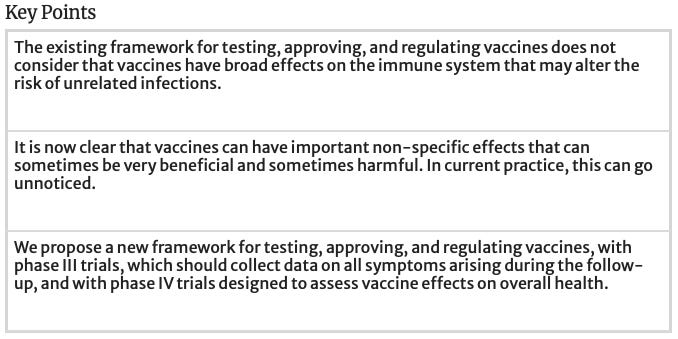Maryanne Demasi | 1 Sep 2023
Experts say mRNA vaccine can make cells of the immune system “lazy” when it comes to fighting off viral and bacterial infections.
Last week, a new peer-reviewed paper published in Frontiers in Immunology has sparked concern over whether mRNA shots could be weakening a person’s immune response.
The small study involved 29 children aged 5-11 years. Blood samples were taken from the children before and 28 days after a second dose of Pfizer’s mRNA vaccine. Samples from eight children were also analysed at six months.
Researchers found that vaccination resulted in reduced levels of cytokines – molecules that play a crucial role in mobilising an immune response against viruses and bacteria.
“Our study showed that, in children, SARS-CoV-2 mRNA vaccination decreases inflammatory cytokine responses,” wrote the authors.
This study builds on a previous pre-print in adult volunteers, that showed Pfizer’s mRNA vaccine could modulate the response of immune cells to non-specific viral fungal and bacterial infections.
The two studies are small, and the clinical outcomes were not assessed, so researchers cannot prove that mRNA vaccines increase a person’s susceptibility to “non-specific” infections in the real world.
However, this phenomenon has been shown to occur with other vaccines that are currently on the market.
In low-income countries with a high infectious disease pressure, so-called “non-live” vaccines such as the diphtheria, tetanus and pertussis (DTP) vaccine have been associated with increases in all-cause mortality and morbidity.
Christine Stabell Benn, epidemiologist, and professor at the University of Southern Denmark, is at the forefront of studying the phenomenon of “non-specific” effects of vaccines.

“We found in our work that three months after subjects received the DTP vaccine, they showed lower immune responses in vitro to other infectious stimuli,” said Stabell Benn.
“Essentially, the immune cells become lazy, and they simply don’t respond as vigorously when they are challenged with an infectious agent,” she added.
The opposite was true when “live” vaccines were administered to people, such as the BCG (tuberculosis) vaccine.
“After BCG vaccination, immune cells would react more actively in response to other bacterial stimuli by reprogramming cells in the bone marrow to spit out more active innate immune cells,” said Stabell Benn.
The covid-19 vaccines are non-live vaccines, and Stabell Benn says the recent studies looking at reduced cytokine levels may be the “wakeup call” needed to do further studies.
“We now have two immunological studies that suggest the mRNA vaccines could suppress your ability to respond to other viruses, at least for a period of time, and it warrants urgent investigation,” said Stabell Benn. “Especially in children, because we are talking about a population at very low risk of severe covid-19 disease.”
Denmark stopped recommending vaccinating young children against covid-19, but in the US, it’s now part of the childhood immunisation schedule for individuals 6 months or older.
Stabell Benn said, “In the US where they are still vaccinating young children, they should immediately do a randomised study with mRNA vaccines, and investigate whether the reduced effect on cytokines translates into poorer clinical outcomes.”
Stabell Benn says it cannot be excluded that widespread use of the mRNA vaccines could be linked to recent unusual global outbreaks of bacterial infections, as well as viral infections.
This year for example, cases of respiratory syncytial virus (RSV) have skyrocketed across Australia, with some states reporting close to 10 times the number of cases compared to the same time last year.
Stabell Benn said, “A major factor for increased infections is the lockdowns that weakened immune systems because they are meant to be continuously stimulated, but we cannot exclude that the vaccines have also played a significant role.”
Currently, her team is conducting a study comparing vaccinated to unvaccinated children aged 5-11 years in Denmark.
“We will assess the clinical outcomes of these children, and most importantly, answer the question of whether there are any clinical differences in terms of the risk of other infections, other diseases in the children who were vaccinated or not,” she said.
Stabell Benn recently called for a new framework for testing and approving vaccines, in a paper published in the journal, Drug Safety (see key points below).

Stabell Benn said this framework should have been applied to the covid-19 trials. A major flaw in testing was that they did not assess whether the mRNA vaccines affected the risk of contracting other infections.
“While they reported covid-19 cases, they overlooked the possibility that people might’ve developed other infections like pneumonia down the track due to a weakened immune response after mRNA vaccination,” said Stabell Benn.


